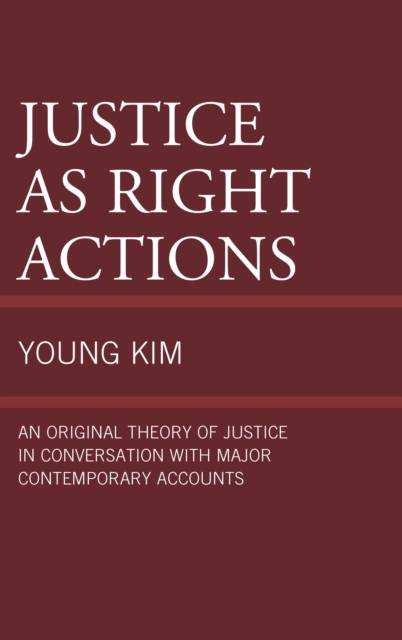
- Retrait gratuit dans votre magasin Club
- 7.000.000 titres dans notre catalogue
- Payer en toute sécurité
- Toujours un magasin près de chez vous
- Retrait gratuit dans votre magasin Club
- 7.000.0000 titres dans notre catalogue
- Payer en toute sécurité
- Toujours un magasin près de chez vous
Justice as Right Actions
An Original Theory of Justice in Conversation with Major Contemporary Accounts
Young Kim
Livre relié | Anglais
184,95 €
+ 369 points
Description
Justice as Right Actions proffers an original theory of justice and contrasts the theory with major contemporary accounts. Stated as two principles and a priority rule, the theory provides normative guidance to questions of justice in given political circumstances.
Spécifications
Parties prenantes
- Auteur(s) :
- Editeur:
Contenu
- Nombre de pages :
- 230
- Langue:
- Anglais
Caractéristiques
- EAN:
- 9781498516518
- Date de parution :
- 08-10-15
- Format:
- Livre relié
- Format numérique:
- Genaaid
- Dimensions :
- 152 mm x 231 mm
- Poids :
- 476 g

Les avis
Nous publions uniquement les avis qui respectent les conditions requises. Consultez nos conditions pour les avis.






